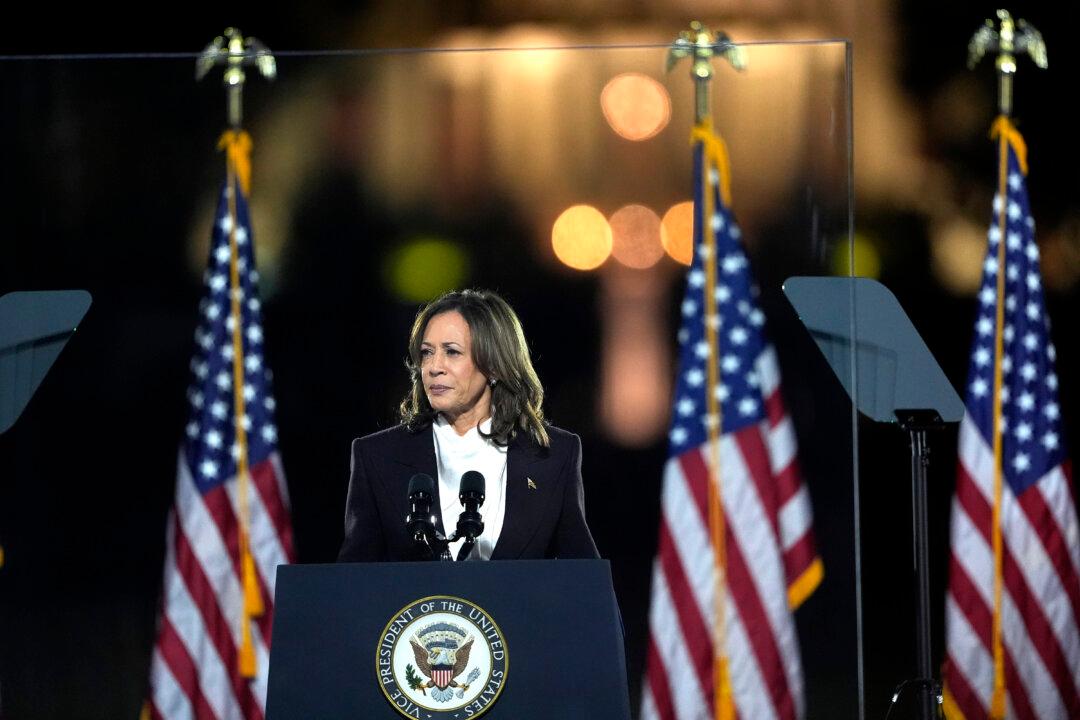WASHINGTON—A week before Election Day, Vice President Kamala Harris made her campaign’s closing argument in the heart of the nation’s capital, telling tens of thousands of supporters from around the country, “I offer a different path, and I ask for your vote.”
Marking just more than three months since she entered the race after President Joe Biden dropped out, Harris sought to rally her supporters around key topics of her campaign, including abortion, housing, and tax incentives for caregivers.






